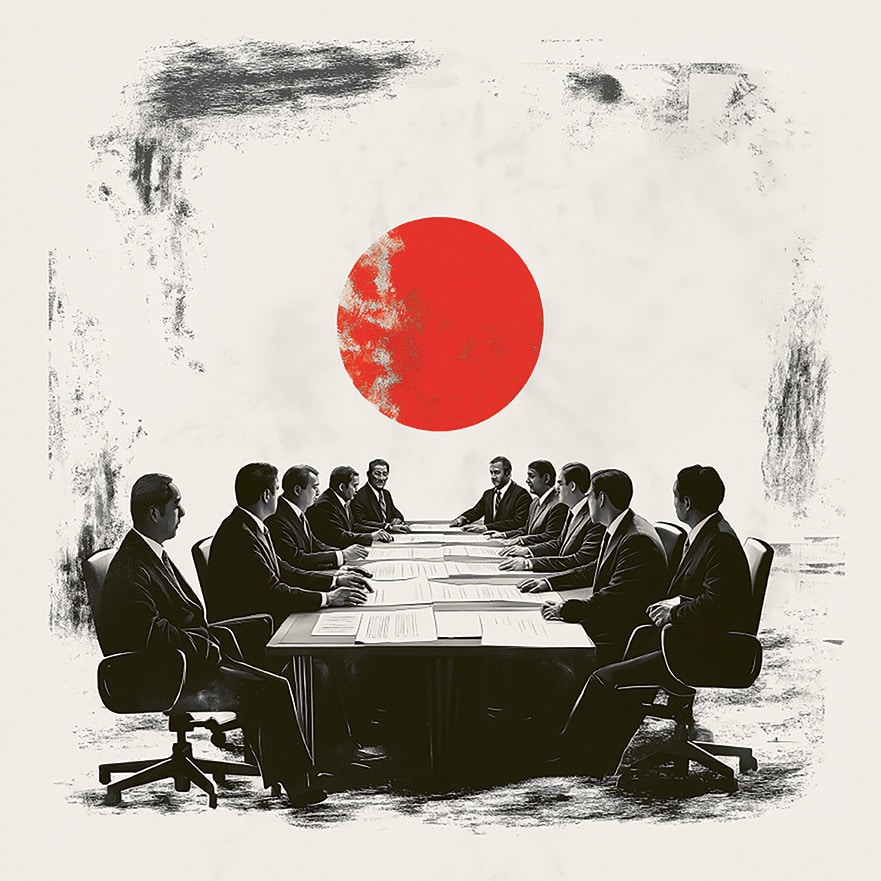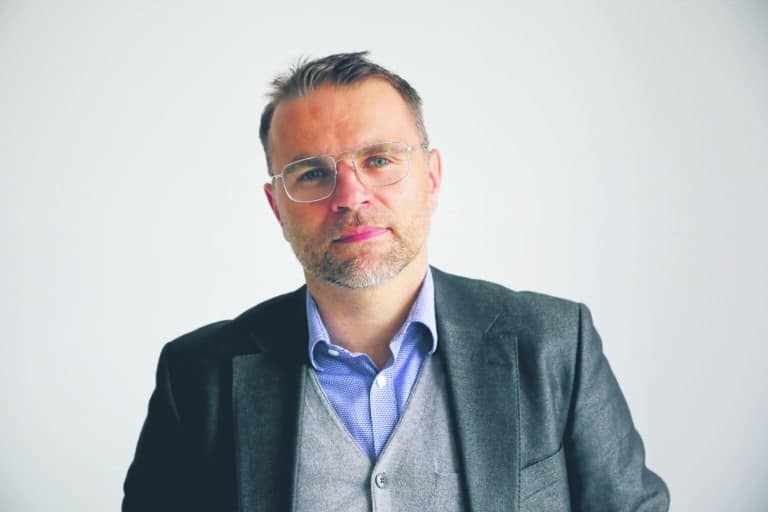Pierogi and pianoto nanotechnology – Poland’s offer to Japan
Poland is eager to increase its trade footprint in Expo 25 host country Japan, engaging Chopin and technology to drive more trade.
As Osaka Expo 25 gets underway in April, with arts and culture in focus before a Polish trade fair on the 20 May, we take a look at the importance of Poland’s commercial and cultural relationship with the world’s third largest economy. The Polish pavilion, one of 161 country stands at the fair in the largest city in the Kansai province, boasts the slogan “Poland. Heritage that drives the future.” The Polish Expo team, led by the Polish Trade and Investment Agency, PAIH, has harnessed the popularity of the country’s top cultural export to Japan,
a love of Polish 19th Century composer Fryderyk Chopin, as a starting point for interesting the Japanese in growing cooperation in high-tech industries. The composer’s work will be heard at a series of concerts during the event to entice Japanese visitors to the pavilion to come and see Poland for themselves. Many investors from their country are already there.
Japan is the third-largest investor in Poland, after Germany and the US, and as many as 300 companies of which 100 are involved in production. Some 300,000 jobs in Poland can be traced to Japanese companies and investments, many of which would surprise outside observers.
“Despite being landlocked, a company in our region is the largest exporter of smoked salmon in the world, with much of the produce sold in Japan” Mariusz Dąbrowski, the Director of Investment for the Marshal’s office of the north eastern region of Podlaskie told Poland Weekly. “Mitsubishi owns some of the largest salmon farming operations in Norway. Through a partnership with a company called Seumpol in Bielsk Podlaskie much of the fish is smoked and processed in Poland before being exported to Japan and the rest of the world.”
Podlaskie is one of 11 regions sending a delegation to the investment event in Osaka in May. The region, one of the major agricultural powerhouses of Poland, has also attracted Itochu, which sells powdered milk produced in Poland to Japan. Asked what attracts Japanese investors to Poland, Dąbrowski, whose wife of 20 years is Japanese, says that they find the attitude towards work in Poland to be similar their own.
Poles do not necessarily devote their lives to work like Japanese workers do, but if given a task, they think nothing of rolling up their sleeves. The Podlaskie region’s investment guru recalled a conversation with a Japanese manager who had been “very pleased with his Polish workers”,found a different picture when transferred to Argentina. Dąbrowski said that in South America, the workers accused the manager of “breaking the labour code” by” expecting the same engagement” that was “normal” in Poland.
Poland is a European home market
Large companies such as Toyota see Poland as a base for European Union sales. “The Polish domestic market alone is not large enough to attract companies of that calbre,” Dąbrwski explained. The auto manufacturer has invested a total of 6 billion złoty (€1.5 billion in plants such as the ones in the Wałbrzych and Jelcz in South West of Poland producing 1.8-litre hybrid engines and electric hybrid transmissions for on their TNGA (Toyota New Global Architecture) platform. Nationwide Toyota has around 3,000 workers, according to the Polish Ministry of Economic Development and Technology website, which estimated the company’s production capacity rose to 1.8 million components per year in 2021 on the back of new investment.
Other major Japanese manufacturers in Western Poland include Sumimoto Electric, which produces cables and for the automotive industry.
Asahi brewers have bought leading Polish beer brands Tyskie and Lech, produced in Lower Silesia and Wielkoposkie regions in Western Poland. The Polish chocolate brand Wedel was taken over by Japanse-owned Lotte in 2010.
Meanwhile, the Japan Tobacco company produces Winston and Camel cigarettes in Stary Gostów near Łodź in central Poland, which are exported to over 80 countries worldwide. Investing more that 200 million dollars in a new production line at the factory, they have introduced the manufacture of innovative tobacco heating devices. The tobacco firm also has a Global Services centre in Warsaw employing 800 people, bringing the total employees in the company to 3400.
Patience brings longterm rewards
Dąbrowski advises Polish companies who want to do business in the land of the rising sun to be patient, and take time to establish trust. Your Asian partners are likely to think long term.
Language and Education
Communication could be an issue for newcomers to the market. The Japanese are not renowned for their excellent command of English, so interpreters are often required for ding business with the Asian country. However, Dąbrowski assures that there are a growing number of people learning Japanese at schools and universities in Poland, as well as a growing diaspora of Japanese people who can serve as interpreters. His own daughter Marika (16), is fluent in Japanese and English.
Help is also at hand from students from the Polish-Japanese Academy of Information Technology in Warsaw, a college funded by Japanese investors, which offers courses in technology and graphics, as well as Japanese language training. Their students have been offered 6-month internships in Osaka to assist exhibitors and guests.
Kraków, a Japanese harbour
Not to be left out, Kraków has a claim to being one of the regional capitals of Japanese culture, as well as a magnet for Japanese tourism.
In addition to the hosting Japanese collection of Oscar-Winning Polish film producer Andrzej Wajda (1926-2016) in a specially-built museum facing Wawel Castle, Kraków also holds the honour of having the largest Japanese language school in the country. The Sun Star Japan School founded by Hiroshi Hyodo in 1998 now has 360 students of Japanese aged from 10-50 years of age, according to its website.
Japanese come to learn and hang out
Hyodo’s son, Gabriel Hyodo a Youtube influencer, with 441,000 subscribers, is another product of a Japanese- Polish union. He posts regularly on Japanese culture and lifestyle. In one of his online videos he explains the attraction of Poland for Japanese tourists.
“You get two lots of people visiting Poland from Japan, the influencer explains – older people and younger people.”
“Many of the visitors are retired and are members of cultural societies fascinated with subjects like the second world war, or classical music. For them Poland is just amazing. They are just so surprised because they associate Poland with the destruction of the second world war and find that it is really beautiful and a great place to be.”
“Then you get young people, who come to Poland because it is part of Europe. They come to study English but find it is a really cool place to stay, and really safe.” Many short term visitors have remained in the country long-term, working for Japanese companies or venturing into the catering business, according to the vlogger.
Pierogi diplomacy
Food was one of the Expo-related topics that came up in a TOK-FM interview with PAIH’s Marta Zielińska. Many of the companies interested in doing business in Japan are from the agri-food industry.
The Pavilion has enlisted the help of Michelin Green Star-winning restaurant Elixir from Gdańsk. The Staff of head chef Paweł Wątor will provide dishes tol entice the Japanese public, while celebrating Polish favourites. Delicacies, including Polish pierogi dumplings with a Japanese twist, and served on traditional Polish blue-spotted pottery from Bolesławiec in southwest Poland.
Technology and defence
For some Polish technology firms the Japanese market is one of growing potential, as long as they have the right local partners in place there. Warsaw-listed XTPL announced a deal with Japanese firm PEC in February to develop sales of its thin-film photovoltaics, memristors (memory restistor electrical components), and sensors.
Vigo Photonics, a Mazowsze region infrared detector manufacturer is also checking out the Japanese market and attended several fairs in Japan in 2024.
Meanwhile, Wrocław-based start-up QNA is another firm with Japan in its sights, having signed a distribution deal with New Metals & Chemicals Corporation Ltd in 2024. The nanotechnology company has won several awards for its technology and has already sold its DeepBlue.dots, in Japan and hopes to sell more, QNA board member Maciej Adamczyk wrote on the company’s website, which now boasts a Japanese version. The product is a colloidal solution made of quantum dots that are characterized by limited toxicity and can emit high-energy deep-blue light used in the photostimulation of various biochemical processes important in medical therapies.
So it is not just pierogi and Chopin on offer to the Japanese market. “There are many examples of Japanese co-operation which has skyrocketed Polish production,” Mariusz Dąbrowski said.







